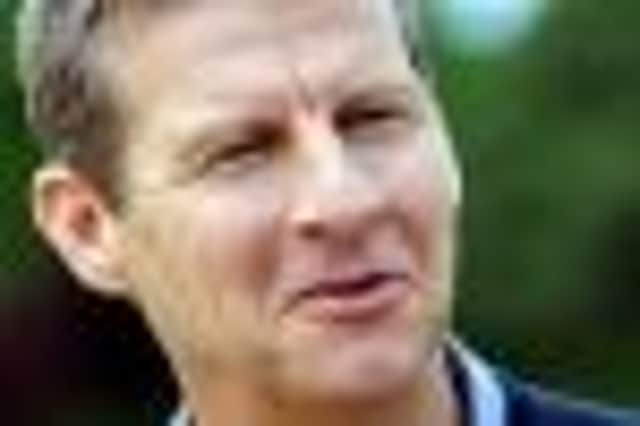Templates firmly in place for Britain to reap riches in Rio


England’s footballers hit the heights in 1966 but have not done so since. Ditto the nation’s rugby union side in 2003 and, to a lesser extent, its cricketers two years later.
Both celebrated successes so wildly that they initially forgot their obligation to build on those accomplishments and fell into a rapid decline.
Advertisement
Hide AdAdvertisement
Hide AdIf this is a warning sign for Britain’s Olympic sports coming out of a memorable London 2012, then the authorities appear to be heeding it.
UK Sport is to continue receiving £125m of funding each year from the National Lottery and the Exchequer in the run-up to the Rio Games in four years.
The leading influences are determined to ensure London is the start of something long-lasting, and not its zenith.
Steve Cram, as BBC commentator, an Olympic medallist and chairman of the English Institute of Sport, is a man whose voice carries as much weight as anyone’s.
Advertisement
Hide AdAdvertisement
Hide Ad“Planning for Rio had already started before London, and people are a bit surprised by that,” says Cram, pictured.
“All the athletes are back training and you cannot send them back without anybody knowing what they’re aiming for. So I think we’ll do very well in Rio.”
The target for the home nation at London was 55 medals and fourth in the medals table. But on a wave of public euphoria, Team GB won 65 medals and finished third. The reason for such a strong performance?
“We have invested well in structures and systems,” says Cram. “There’s talent on every street corner, but you’ve got to give them the opportunity, you’ve got to give them the right science, the right medicine, the right equipment, and we’ve invested more than anyone in the world, including the big nations.
Advertisement
Hide AdAdvertisement
Hide Ad“We’re there to be shot at in four years. If Russia get their heads together and put money into it we might struggle against them again, but it would take significant funding.
“There were people winning medals for GB who weren’t even in their sport four years ago and the reason we could do that was, if you’ve got good systems and processes in place within your sport and overall programme then it’s easy to take a talented individual to a high level.”
If the funding and focus on elite level remains positive, Cram hopes that those on the rungs below do not get overlooked.
“What we have become very good at is performance sport, because we’ve had the money and a very clear goal going back to 1996,” he says. “The rest of it, I’m not sure we’ve got our heads around yet, like school sport, community sport, coaching, volunteering – which are all big issues.
Advertisement
Hide AdAdvertisement
Hide Ad“If the kids do get the chance, whether in Yorkshire or anywhere else, we’ve now got the systems in place.
“We know what we’re looking at and know what we are looking for. For a lot of the Olympic sports we’ve now got a template. If a person is of a certain level then there are places they can be sent to where they are going to be treated like a high-class athlete. It’s a little bit different to where we were 15 to 20 years ago.”
What Olympians have access to nowadays is something Cram could only dream of when he was growing up in the North East. Along with Daley Thompson and Sebastian Coe, he was one of the country’s first full-time athletes, but had nothing to compare with what athletes can tap into now.
“We were full-time in our minds but we weren’t getting the support. I had no nutritionist, I had no bio-chemist, whereas now you can fill your day with doing the right things to enable you to train really hard which is a bit different to how it was back then. I’m envious, but more about the science and medicine.”
Advertisement
Hide AdAdvertisement
Hide AdThe memory of a fabulous Olympics makes Cram proud. “We were successful at London because we planned for success. I was confident that in the years leading up to it we’d deliver a good Games.
“You know what the media are like, we can be a bit cynical. But I had guys from Australia, France, America, coming up to me and saying ‘this is great, the best’. They were talking about the atmosphere. For people who can compare it to others, they put it up there as the best.”
Steve Cram is an ambassador for Clydesdale Bank, who support local communities through their Howzat! campaign. Visit facebook.com/ClydesdaleBankCricket